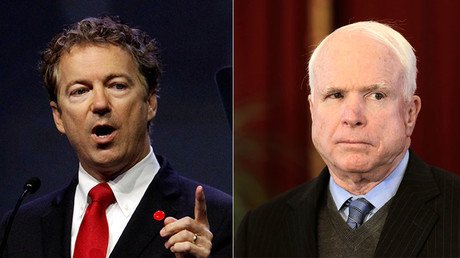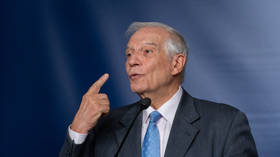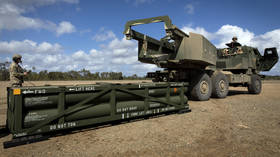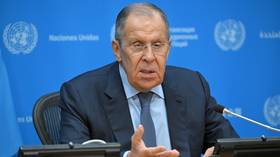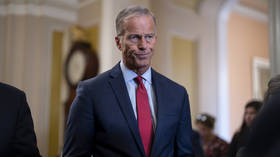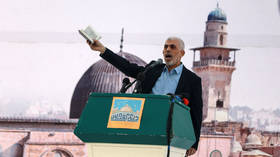America illegally at war for a long time now – US Senator Rand Paul
US Senator Rand Paul has spoken out during the debate on war powers, saying that the current wars the US is leading are “illegal,” and that he isn’t “voting to go to war in 50 or 60 countries” where terrorist powers are now based.
The hearing during which Rand Paul spoke out was the latest one in a yearlong string of debates over what to do with the open-ended 9/11 Proclamation on war authorization.
The divide between the members of Congress over the issue has been growing, with some using “this debate for the singular purpose of imposing limitations on our president — it’s just a fact,” according to Republican Senator Bob Corker, while “others may refuse to limit a president at war in any way.”
Paul first of all argued about the role and specifics of Article II of the US Constitution, detailing the president’s duties as commander-in-chief.
He said that the founding fathers of the US – George Washington, Thomas Jefferson, Benjamin Franklin among them – “would disagree with you on saying that Article II gives the president power to commence in war,” instead listing it as “congressional duty, not president’s at all.”
“I want to know, are we going to limit the president's power? Are we going to take back our power? Are we going to limit the duration of the war? Are we going to identify our enemy?” Paul asked during the statement.
To lead a war against terrorism – at least the way the US might see it – is becoming less and less acceptable, Paul said.
“Well, just the Islamic State [IS, formerly ISIS/ISIL] is in 32 countries right now. I mean, you add in Taliban and you add in Al-Qaeda, we're probably [talking about] at least 50 or 60 countries. I'm not voting to go to war in 50 or 60 countries.”
Thus, there should be a strict and specific limitation for war powers, Paul argued, saying that if they pass something for the sake of it, and not to limit the war powers, it wouldn’t be acceptable.
Some people, Paul noted, say that “you got all the Article II, and it would just be nice to have an AUMF [Authorization of Use of Military Force].
“No, it wouldn't be nice. That's the Constitution. There's supposed to be no war without an AUMF. We have been illegally at war for a long time now. This is illegal war, at this point,” he said.
Another key document related to the war powers that is mentioned by Paul is the 9/11 Proclamation, which was “very specific to 9/11, and we’ve had people just saying, ‘you can do anything you want now’ for 15 years.”
However, there is a “practical question” related to this, Paul noted.
“Is doing anything you want, killing every perceived enemy and every perceived leader or chieftain of five people in some misbegotten village, is it helping?”
He gave an example of US forces killing four or five terrorists in a village, but also killing their wives and children: “Is it better? Do we have less terrorists now or more?”
“For a hundred years they'll be talking about the time the Americans came and killed women and children. For a hundred years, they're going to be talking about the Saudis dropping bombs on a funeral procession. That does not go away. These people remember the battle of Karbala in 680AD. They have long memories,” Paul said.
“We're not going to defeat terrorism by having war in 60-some odd countries and dropping drones on everybody that we think in a village is of a radical ideology. And I just say now, I won't vote for something that doesn't limit the president's power, but simply gives a rubber stamp to what we're doing,” the senator concluded.

